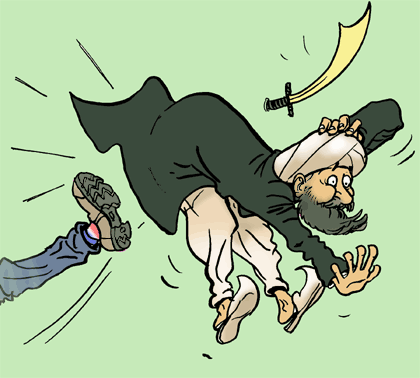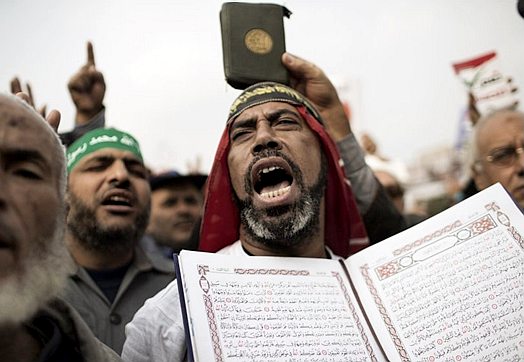I have repeatedly drawn the reader’s attention to the excellent work of Professor Bill Warner regarding his observations on the principles of duality and abrogation in the Koran. Fortunately we have a wealth of trained experts equal to the task in bringing the average, interested and untrained observer, that much closer to effectively challenging the most evasive of Islamic apologists. Understanding Islam is the key to limiting its impact on our societies, and eventually, turning the tide of popular opinion against it.
Republished in part from the Gate of Vienna.
The Doctrine of Abrogation
In the comments on Geert Wilders’ open letter to Pope Francis, a reader named MH indicated that he was unfamiliar with — or was pretending to be unfamiliar with — the Islamic doctrine of abrogation as it applies to contradictory verses within the Koran.
In a nutshell, any earlier verse of the Koran is considered “abrogated” if a later verse contradicts it. The chronology of the suras of the Koran has been well-established by a consensus of Islamic scholars, so an observant Muslim can be in no doubt as to whether any particular verse of the Koran is binding upon him under Islamic law.
Retired U.S. Army Major Stephen Coughlin is one of the foremost experts on Islamic law in the Western world. Several years ago I had the privilege of helping with the editing of material that Steve was putting together, including the following section on the Koranic basis for the doctrine of abrogation. The text below is reproduced with his permission.
The Doctrine of Abrogation
By Maj. Stephen Coughlin
At the very pinnacle of Islamic law is the Koran, which is the uncreated word of God as revealed through his Prophet.
So what is abrogation?
This is what Imran Ahsan Khan Nyazee has to say about abrogation in Islamic Jurisprudence:[1]
The law was laid down in the period of the Prophet (peace be unto him) gradually and in stages. The aim was to bring a society steeped in immorality to observe the highest standards of morality. This could not be done abruptly. It was done in stages, and doing so necessitated repeal and abrogation of certain laws.
As you can see, Nyazee acknowledges that the Koran contradicts itself. Upon discovering this fact, someone who knows little about Islam might say, “The Koran contradicts itself. Doesn’t this mean it’s broken?” But anyone who takes the time to look into the scholarship will learn that is well understood in Islam that the Koran contradicts itself. This fact is explained, and taken into account. There are methods for dealing with it.
This becomes significant when non-Muslims approach a Muslim cultural expert or “moderate” to ask about certain verses of the Koran that are cited by radicals to justify their violent jihad. The cultural expert or “moderate” will respond with something like this: “You (infidel) must read from the entire body of the Koran to understand the true meaning. Those radicals cherry-pick from the back of the Koran.”

With this reply the cultural expert gives the impression that he does not agree with the radicals, but he never actually says that what they cherry-pick is wrong.
So what is the Koranic basis for the doctrine of abrogation?
It is a Qur’an which We have divided into parts from time to time, in order that thou mightest recite it to men at intervals: We have Revealed it by stages. (Qur’an 17:106)
Concerning this verse, the Qur’an commentator Yusuf Ali says:[2]



I’ve written a small article about this subject;
https://www.theapricity.com/forum/showthread.php?95043-Is-The-Banning-Of-Abrogation-The-Only-Hope-To-Reform-Islam